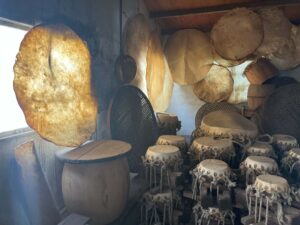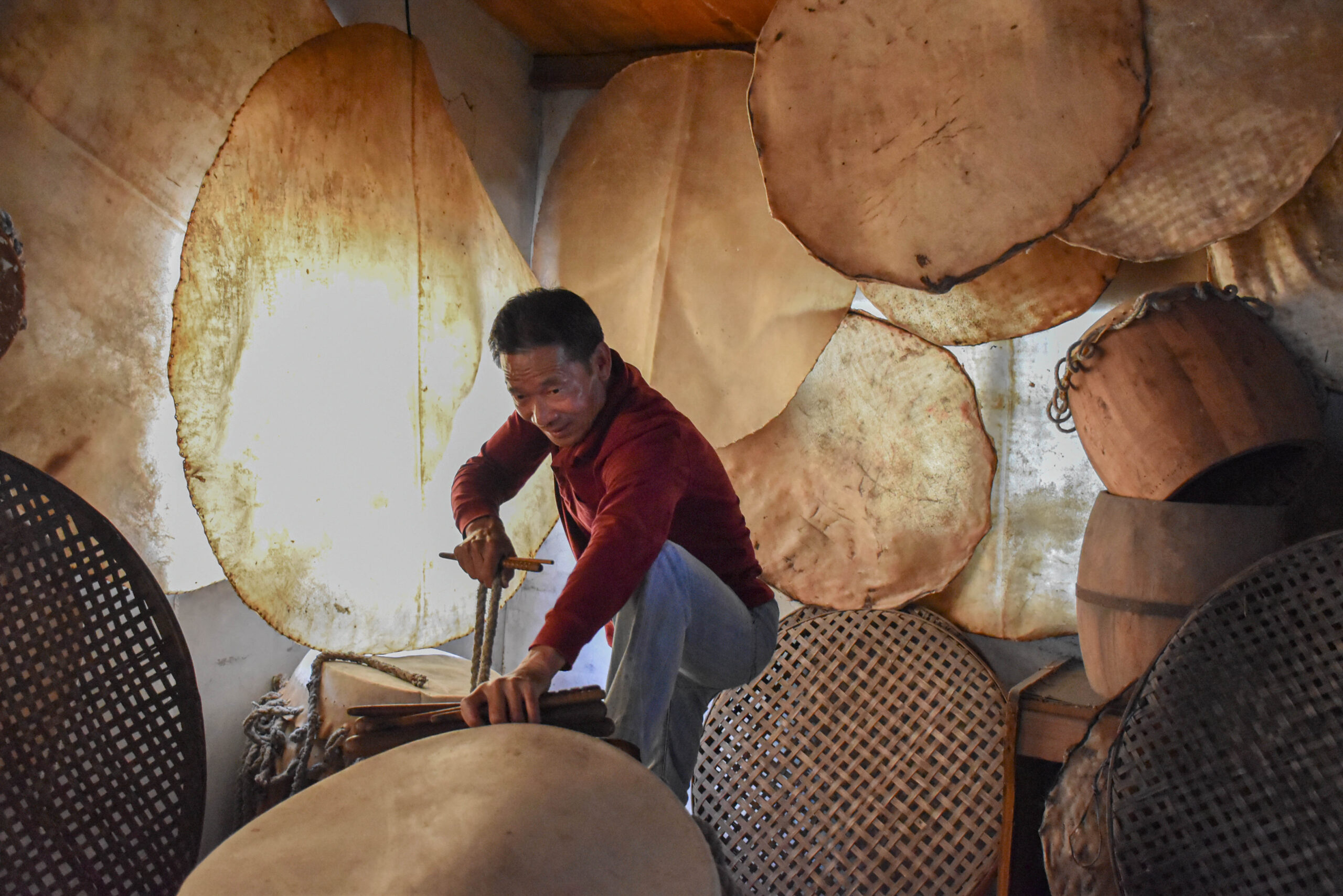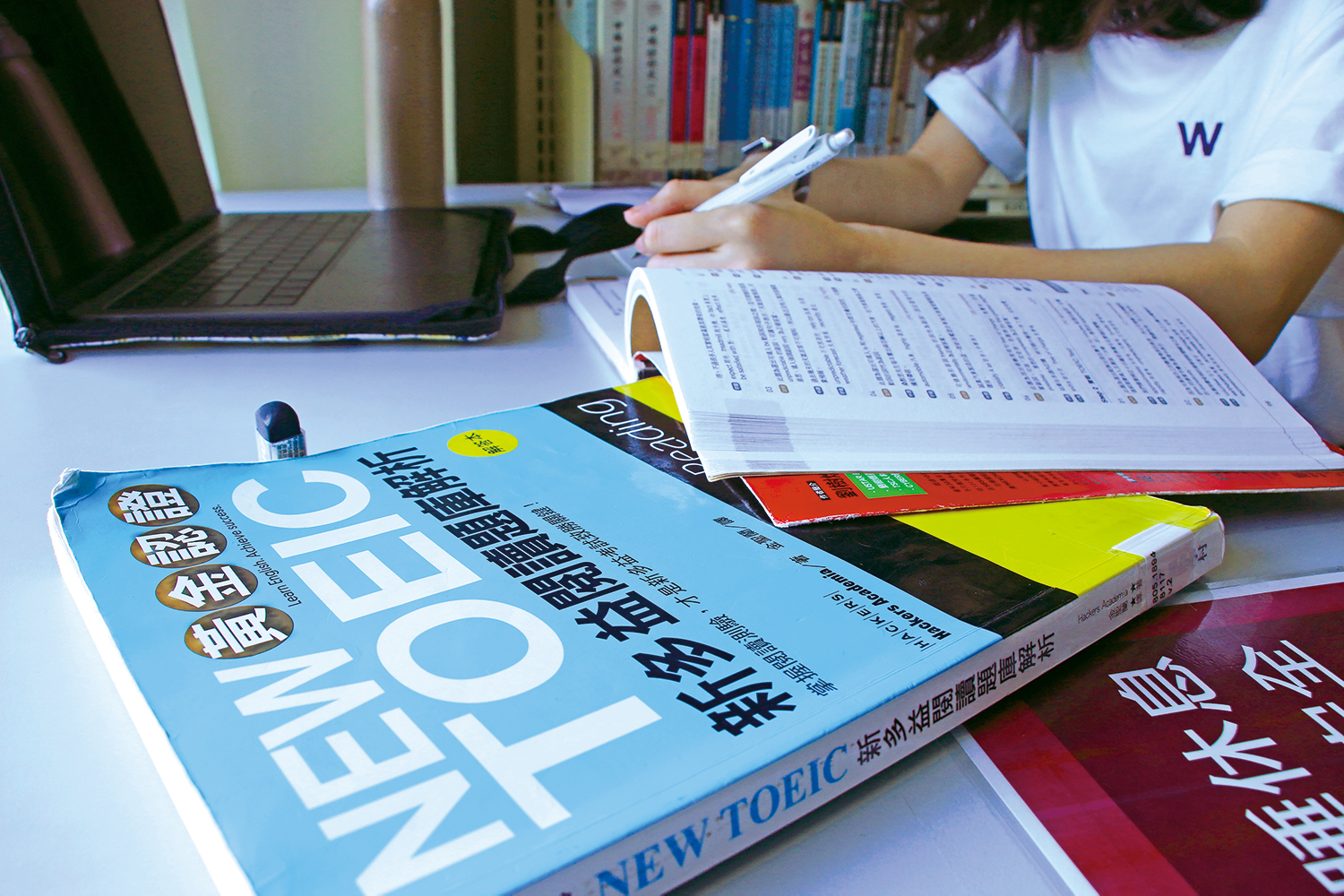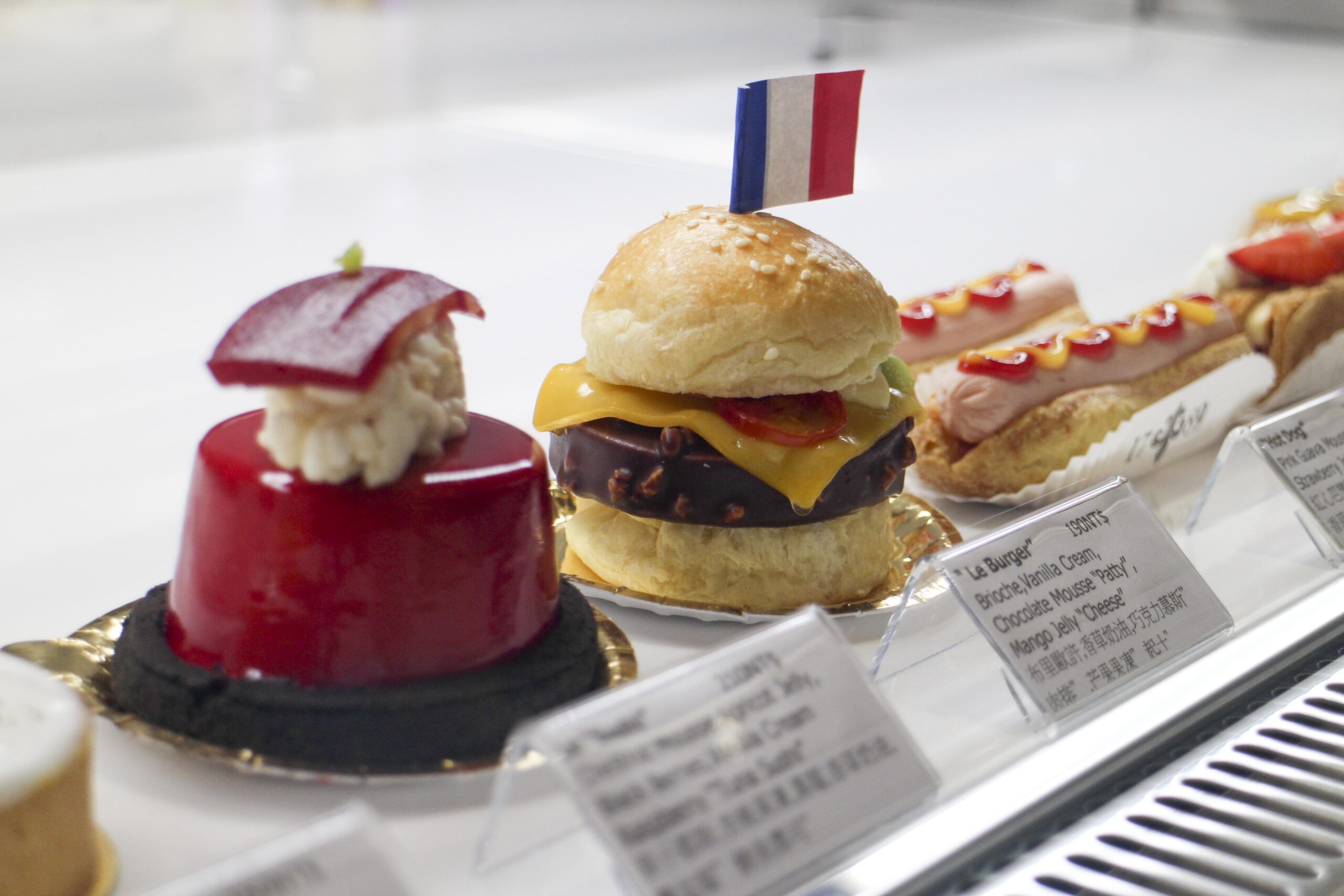Reporters/An-Ting Chen, Chia-Ni Chang
“Dong!Dong!Dong!” The crisp and loud beat of the Chinese drums keeps hovering in ones ears. In Taiwan, Chinese drum plays an indispensable role in the temple festivals and Chinese opera performances, not only representing respect for the gods but also cleansing the hearts of the worshippers.
Taiwan’s handmade drum industry has been flourishing for nearly 75 years thanks to early traditional festivals. In face of imported drums and the lack of raw materials, this industry is on a decline. However, Huang, Cheng-feng has never given up on this handicraft.
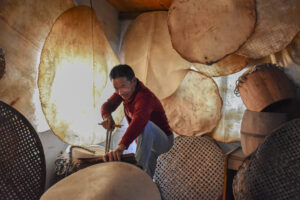
Master Huang, Cheng-feng, who grew up in the environment of handmade drum making, is the second generation of Yong-An Drum Making Art Society, based in Xianxi Township, Changhua County, which people called “Fong-Tou-Shui-Wei ” in Chinese. This small town near the coast suffered from seawater intrusion, which often led to poorly harvested crops. Consequently, his father Huang, Xiu-an decided to learn the art from drum masters to bring home the bacon.
The process of making drums by hand is time-consuming as the raw cattle skin must be boiled, cut, peeled, and exposed to the sun. In the plum rain season, the dampened cattle skin might stink with a strong stench, and even germinate worms. After drying the cattle skin, the craftmen need to chisel, rop, stretch, and tan the cattle skin again. The next step is to drill holes in the drum’s body, pierce the brass ring, stretch the drum, and test the sound. With more than twenty processes, it usually takes nearly a month for a Chinese drum to be made.
When Huang was young, his father always asked him to help at home. At first, he really abhorred doing it because the cattle skin was dirty and smelly, and the working environment was dark and messy. Thus, he often tried to come home late after class and it was a common occurrence for him to have a spat with his father.
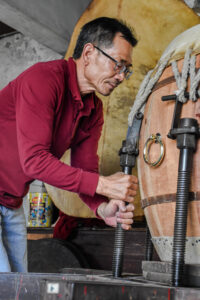
In the 1990s, during Taiwan’s economic take-off, Huang’s father received an order from Japan to make Taiko drums. Because of the lack of help at home, even his brother, who suffered from polio and had mobility problems, also helped out. The whole family was busy making drums together. Even so, Huang still rejected making drums and had many arguments with his family. Not until his father died of a stroke and the family was left with debts did Huang realize the importance of holding onto the family business so as not to let his father’s life time work go to waste. Therefore, he decided to inherit the time-honored brand ”Yong-An Drum Making Art Society.” In memory of his father, Huang had his father’s name and his name engraved together on the drum’s surface.
When cutting cattle skin, Huang has to use the strength of his shoulder, neck and arm. Over the years, the height at which his two arms can be lifted becomes different, and his shoulder and neck become painful once the force is exerted frequently, which is commonly known as the frozen shoulder. Even though years of drum production have caused him occupational injuries, Huang regretted not going home earlier to help. He said with tears in his eyes, “I’m remorseful for being ashamed of my father and for not coming home earlier to help.”
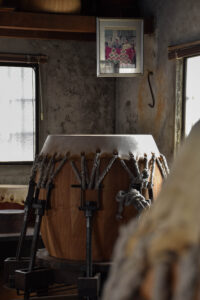
Perseverance Guarantees Great Works
Huang didn’t expect to take over the family business, and felt frustrated when he faced the difficulties of low price competition from imported Chinese drums. He recalled that there were no orders for a while, since many customers were switching to cheaper imported Chinese drums. “It’s better to buy two imported Chinese drums than to buy Huang, Cheng-Feng’s Chinese drums. Not only are they cheaper, but they can also be replaced relatively quickly,” some customers said.
These words made Huang feel disheartened, but instead of being discouraged, he paid more attention to the quality of his handmade Chinese drums. Years later, many customers who bought imported Chinese drums thought that Huang’s handmade Chinese drums were more durable, had a better quality, and could be customized, so they became his recurring customers.
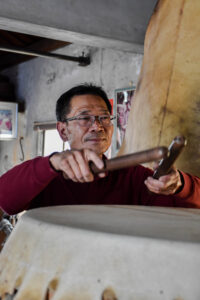
As the saying goes, “March is the time for going after Mazu, April is the time for welcoming the Wangye, and May is the time for the god of the city,” Huang has a thriving business in Chinese drums every year from March to May on the Chinese lunar calendar. But in recent years, the COVID-19 pandemic outbreak has caused either cancellation or postponement of various folk celebrations. Thus, orders were greatly reduced. To make things worse, shortage of cattle skin has nearly put this 75 years of handicraft out of business. However, Huang had a change of heart and went to the campus to share with the students the process of making Chinese drums, the sound of the Chinese drums and the occasions for which they are suitable to play in. He believed that the most important thing in this stage is to let more and more people know about this traditional handicraft.
While there is life, there is hope
In Taiwan, hand-made Chinese drums makers have faded away and are facing a talent gap or fault line, with only a few left. Huang, Cheng-feng stated that he was willing to pass on hand-made Chinese drums skills to his son, but the income wasn’t stable, and the profit wasn’t proportional to the time and labor spent in making drums. With the competition from low-cost imported Chinese drums, the shortage of raw materials and price increase, inheriting family business and making ends meet become an issue for Huang and his family.
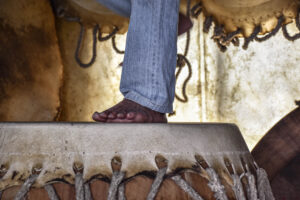
Huang, Cheng-feng deplored about the decline of hand-made Chinese drums in this generation. However, he commented on his work in making drums by saying that he has undergone the stage from initial rejection to delightful acceptance of his job as a drum maker. Huang also shared that perseverance is the key to success. He didn’t want to disgrace his late father, Huang, Xiu-an, so he continued to make Chinese drums with the hope that his father would be proud of him.
When it comes to combining culture and creativity to generate more business opportunities, Huang, Cheng-feng said that the essence of such a precious craft is not only for profit-making. Indeed, for Huang, making drums is more than a lifetime calling, it also represents a sense of success and family pride. In addition, he revealed his ambition to set up a museum to preserve all kinds of Chinese drums in the future, so that people can learn more about hand-made Chinese drums. Only when more people learn about this traditional art will there be more possibilities for the handicraft of Chinese drums to be passed on from generation to gereration.
